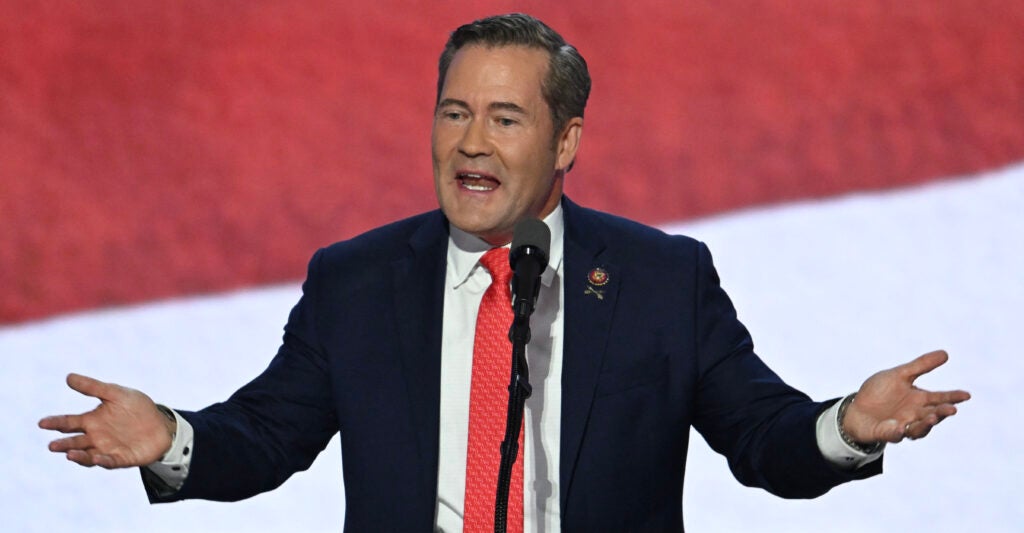President Donald Trump’s choice of national security adviser is a combat veteran who has been a strong opponent of DEI in the military and advocated U.S. sanctions on China.
Trump announced Tuesday that he chose Rep. Mike Waltz, R-Fla., to be national security adviser in his second term, a Cabinet-level position that doesn’t require Senate confirmation.
A booster of the Trump-created Space Force, the former Green Beret and retired colonel in the Army National Guard has overseen military readiness in the House, where he has criticized diversity, equity, and inclusion policies, or DEI, in the military.
“I am honored to announce that Congressman Mike Waltz (R-FL) is hereby appointed to serve in my Cabinet as my National Security Advisor,” Trump posted on Truth Social, his social media platform.
“Mike is the first Green Beret to have been elected to Congress, and previously served in the White House and Pentagon,” Trump wrote. “Mike served in the Army Special Forces for 27 years where he was deployed multiple times in combat for which he was awarded four Bronze Stars, including two with Valor. Mike retired as a colonel and is a nationally recognized leader in national security, a bestselling author, and an expert in threats posed by China, Russia, Iran, and global terrorism.”
The position of national security adviser is the principal White House adviser to a president on national security policy and chairs meetings of the National Security Council.
Taking on China is a key national security priority for Trump in his second term.
Waltz, 50, has characterized China as America’s “toughest adversary.”
Waltz is a member of the House China Task Force, which is made up of 15 House Republicans who represent 14 committees of jurisdiction overseeing U.S. policy related to China. He has sponsored legislation to reduce U.S. reliance on China’s critical minerals. He sponsored legislation to guard American universities and colleges from Chinese spying.
Waltz, who was elected in 2018 to Florida Gov. Ron DeSantis’ former seat in the House, has been highly critical of Chinese espionage against the United States and how the Biden-Harris administration handled it.
In 2022, Waltz wrote an op-ed for Fox News arguing that the Biden-Harris administration should take a more active stance in Ukraine, saying: “We’ve helped the Ukrainians defend themselves against this invasion. It’s now time we help them go on offense to retake the Russian-occupied parts of Ukraine.”
Just before the election, however, Waltz told NPR, “It’s perfectly reasonable that this is going to come to some type of diplomatic resolution.”
“And first and foremost, you would enforce the actual energy sanctions on Russia,” he added. “Russia is essentially a gas station with nukes. … So I think that will get [Russian President Vladimir] Putin to the table.”
Waltz saw combat in the war in Afghanistan. He went on to become defense policy director for Defense Secretaries Donald Rumsfeld and Robert Gates during the George W. Bush administration.
Waltz will leave his post as chairman of the House Armed Services Committee’s readiness subcommittee, where he has pushed proposals to restoring the military to a merit-based system.
He is also a member of the Foreign Relations and the Oversight and Accountability committees.
As a member of the House Intelligence Committee, Waltz is a member of subcommittees that oversee the CIA and the National Security Agency.
Waltz is co-chairman of the House’s Space Force Caucus, which champions the armed force launched by Trump in his first term. He also is a member of the Taiwan and Venezuela Democracy caucuses.
